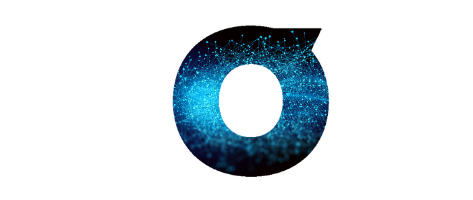
REFLECTIONS ON AI, IN LIGHT OF THE THEORY OF MULTIPLE INTELLIGENCES
Interview with Howard Gardner

One of the world's most influential intellectuals, known for his theory of Multiple Intelligences. Hobbs Research Professor of Cognition and Education at the Harvard Graduate School of Education. Founder of Harvard's Project Zero, he directs the Good Project, for excellence, engagement and ethics in education.
Should AI mimic human intelligence or carve its own path?
What AI does is not entirely happening in one set of hands. Those who design AI systems may have one set of goals but the systems themselves have the potential to proceed In various directions, not all of which can be anticipated, encouraged or headed off.
If I were the designer of a system, I would want AI systems to do effectively what they can do, and to desist from more complex issues—e. g. ethical issues—where we have no reason to think that they will help out the human condition.
Ideally, human intelligences and artificial intelligences should work together. But unless human beings reach a healthy consensus today with respect to their most important and pressing goals, this is unlikely to happen.
Do you believe AI can develop capabilities akin to each of the intelligences you described / what human intelligences cannot be truly replicated by AI?
As for the multiple intelligences, I see no problem in AI systems mastering the major intelligences—linguistic, logical-mathematical, musical, bodily-kinaesthetic, spatial. I have a great deal of difficulty in accepting AI as a significant participant in the personal intelligences—understanding of self, understanding of others. Because WHO would those selves or others actually BE?
I would add that human beings have rich personal experiences over time and undergo a welter of emotions from early in life till the time of death. AI systems can “simulate” those experiences, but only individuals with flesh and blood—and with a finite life span of no more than a century—can truly experience them.
What criteria would you use to define creativity in a human vs. a technological context?
Any system – human or artificial – can be creative, if it comes up with a product, a process, an insight that was nor previously known. But to achieve the effects of creativity, the product or process or insight has to be seen as useful by relevant parties.
At present, human beings would be the relevant parties—but it’s conceivable that a computation system might itself be able to judge what is truly creative, and how best to assimilate it into current knowledge and existing entities.
Here the judges would not be human beings, but rather the goals of the AI system.
How might Existential Intelligence shape AI development?
As I define and contemplate existential intelligence, it’s the intelligence of big questions—those raised by curious young children, but also by philosophers, theologians and others who contemplate the most capacious and comprehensive questions—who are we? Why are we here? What is going to happen to us?
AI systems can certainly raise these questions—but would they CARE about the answers… and can one SIMULATE caring??
What evolutionary potential and opportunities do you see in AI?
Until this point in history, slow evolution has been governed by (Darwinian) biology—and the somewhat speedier evolution of culture and thought by the human individuals who live on the planet.
It’s likely – if not a certainty – that AI programs and devices will come up with procedures, questions, and answers that we as human beings have not anticipated—and that we might cherish, scorn, or fear.
I don’t see AI evolution as being governed by any moral code—be it the Ten Commandments, or a modern governmental constitution.
Of course, individuals, societies, or the whole planet could in principle come up with brilliant or frightening new products or processes—and then it’s a question of who has the power and the equipment to guide or corral these creations in non-destructive ways.
I don’t think that AI systems will divide according to the traditional arts and science and disciplines. Instead, depending on the content that they are fed and the problems and issues that they are posed, they may develop specific kinds of expertise.
Take as an example, the area of classical music. Surveying the music of Beethoven, AI could perhaps be able to creating even Beethoven’s 10th or 11th symphonies (he died in 1827 and only composed nine symphonies). But no one who knew Beethoven’s first 8 symphonies would ever have anticipated the 9th symphony—clearly it came into existence because of what was happening in Beethoven’s world in the third decade of the 19th century?
What do you think the role of AI will be in fields like art, science, and society within the context of multiple intelligences?
Optimally as partners—acceptably as competitors—lamentably as destroyers.
What are your thoughts on the potential for AI to surpass HI in specific domains?
They already have in many domains. AI programs are better at Chess, or Go, than the best human players.
But that does not prevent human beings from engaging in those games or even getting better at those games…
Could AI develop a form of collective intelligence that interacts with and enhances human multiple intelligences on issues such as teamwork, societal problem-solving, or cross-cultural communication?
Optimally, this will happen—but only if it is governed wisely.
As the ancient Romans asked “Quis custodiet ipsos custodes?
What do you see as the biggest challenge in preparing future generations to thrive in a world that demands diverse intelligences?
To understand what AI can do, what it should do, and what it should Not do—unless supervised and moderated by wise human beings
Not to get caught in the weeds of particular subjects or disciplines but rather to understand HOW they work and WHAT they CAN and what they CANNOT or should not do?
Without wanting to cite the multinational corporation which now bears that name, I call this META KNOWLEDGE – Knowledge ABOUT knowledge.
How should we balance the nurturing of multiple intelligences with the increasing focus on technical and STEM-related skills in education?
What we focus on in education is always a ballet between what the society leaders think is important and worth spending time and resources on—as well as what the human beings, the citizens, the voters, want from education?
If a society values the arts, humanities, the softer sciences, they will be offered and individuals will enrol in them and learn to value and cherish them.
But if the society does NOT value these disciplines, skills, subjects, resources, they will – in my view, unfortunately- – die a slow death.
If you do not push the analogy too far, it is akin to religion. Religion does not have an obvious cash value—compared to engineering or computing—but if the society—or parts thereof—value religion, it will retain its place in the educational system and in the broader community.
How should your theory reshape workforce development practices and approaches?
The Theory of multiple intelligences was developed 40 years ago. With modest updates, I think it is still the best description of the varieties of human intellect.
I do not favour a slavish attempt to apply “MI theory” to workplace development. But clearly, if human resource departments are aware of the range of human intelligences and talents, if they take them seriously, and if they try to make appointments and performances that honor different profiles of human capacities, both work and life will be enhanced
On the other hand, if one remains with a SINGLE measure of intelligence – like the IQ test—and makes all decisions based on scores on that one index, we will have many unhappy persons and a workplace that is narrow, stilted, unlikely to grow, or to develop, or to become outstanding.
As it requires reflection on human qualities, understanding complexity, interdependence and empathy, redefining Intelligence, exploration of consciousness…AI development could be seen as a journey into understanding ourselves and our place in the web of life. What are your thoughts on this point?
This is a hope—but it will only work if it builds on the wisdom—and learns lessons from the stupidity—of previous attempts to deal with the subtlest aspects of the human mind.
Data science and AI could be used to study the complexities of intelligence in non-human species, which might offer insights into the evolution of intelligence itself and how we define “living beings” beyond human-centric views.
What are your thoughts on this point?
Please see my coauthored article “WHO OWNS INTELLIGENCE?”. Shinri Furuzawa, Annie Stachura and I consider in depth the nature and operation of hypothesized ANIMAL intelligences, PLANT intelligences, and ARTIFICIAL intelligences.
What do you suggest in terms of strategies for ensuring that AI is developed and deployed to enhance global human potential and human lives rather than exacerbating existing inequalities?
It is Tragic that AI is flowering at the very time that our planet is increasingly run by OLIGARCHS rather than by ORDINARY CITIZENS, preferably citizens who are well informed and who are motivated to do the best that they can.
It does not have to be an Oligarchy or an Authoritarian system. I hope that we do not need to have a bloody revolution in order to restore a more democratic and egalitarian world.
Is there a “key” intelligence among human intelligences that you believe should be further studied and developed to address the challenges posed by AI?
If I Had a few decades, and a generous research grant, I would focus my attention on the two personal intelligences—Interpersonal and intrapersonal intelligences—and on the hypothesized Existential intelligence – the intelligence of big Questions.
These intelligences offer the best route into the nature, potential, and limitations of AI.
You advocate for tailoring educational methods to individual intelligences.
What’s the state of the art and what opportunities do you see in leveraging technologies like AI and machine learning to envision platforms or systems that evaluate individual cognitive and emotional abilities, and adapt learning processes to the unique strengths and weaknesses of each student?
Whatever criticisms one may have of computers and AI in the world of education, they are a GIFT to personalized learning.
In the past, a single teacher had to work with 20,30, or even 60 students in a class. Now every student can have a personalized educational program.
Also, in the past, only the most gifted teachers could present a challenging concept or process or problems in more than one way. Now, thanks to ever more sophisticated computational systems, any substantive issue or concept can be presented in several ways—and even adjusted online, if one pedagogical approach proves more effective than another…for that child or for many children.
Would you recommend a contribution of neurosciences in such an approach?
I spent twenty years studying the human brain and never regretted it for a moment. Indeed, the whole theory of multiple intelligences is based significantly on the organization and differentiation of the human brain.
I am sure that neuroscience will enhance our understanding of all forms of intelligence—including the postulated 8 or 9 multiple intelligences. Indeed, at least in principle, we will be able to study the human brain non-invasively from birth or even prenatally.
Of course, knowledge should not immediately translate into action. But the more that we understand how the human mind works—and where problems lie—the more likely it is that we can make use of artificial intelligence to compensate in the limitations of particular brain—and to build on the strengths of particular brains.
Indeed, if I were in my third decade, rather than my ninth, I would study cognition from the perspectives of AI and of neuroscience. It is worth noting that in 1975 I published a book called THE SHATTERED MIND about brain function and in 1985 I published a book called THE MIND’S NEW SCIENCE, which included chapters on neuroscience and cognitive (computer) science.
So perhaps I already had a premonition of what lay ahead.
Ti è piaciuto il nostro articolo?
Condividilo con le persone a cui potrebbe interessare
